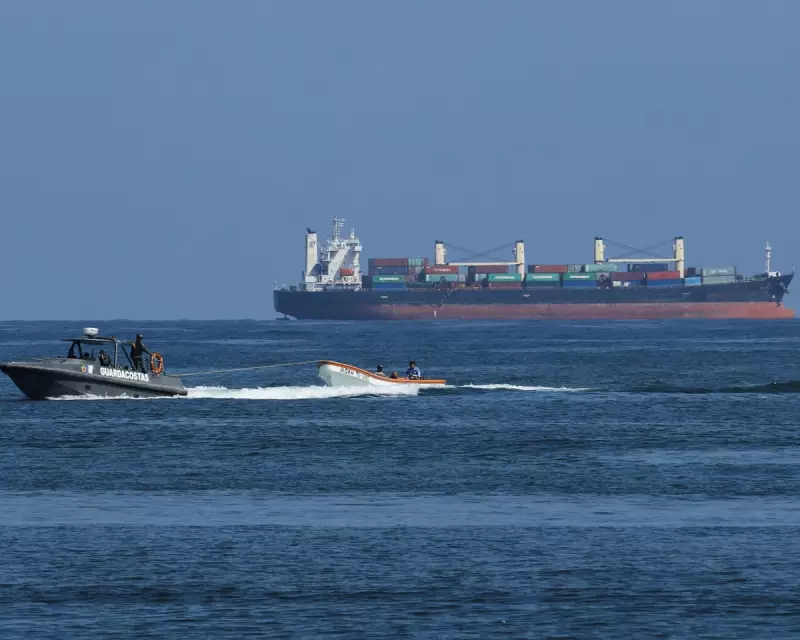
In a revelation that has sent shockwaves through Washington and beyond, former President Donald Trump allegedly attempted to orchestrate an unauthorised military strike against a mysterious vessel in the Caribbean during the volatile post-election transition period in late 2020.
The extraordinary incident, which involved the USS Farragut, a guided-missile destroyer, was only averted through what sources describe as a combination of military hesitation and swift intervention from top Pentagon officials. This event raises profound questions about the command and control of America's nuclear arsenal and military might during periods of political instability.
A Nation's Worst Fears Realised
According to high-level intelligence and military sources, the order was issued by Trump after he received intelligence—later deemed questionable—about a boat allegedly carrying a dangerous weapon. The nature of the vessel and its contents remain shrouded in secrecy, with officials offering conflicting accounts.
The situation represents a chilling breach of established protocol. Military strikes, particularly those initiated on sovereign soil, require meticulous legal review and authorisation. For a commander-in-chief, whose authority was already being challenged following the election, to issue such an order is described by experts as unprecedented and deeply alarming.
The Chain of Command Holds, But Barely
The order reportedly travelled down the chain of command to the crew of the USS Farragut. However, instead of immediate execution, the command was met with confusion and concern. Military personnel, trained to follow lawful orders, found themselves in a constitutional grey zone.
“This is the scenario national security experts have dreaded for decades,” a former senior Pentagon official stated. “The system ultimately worked because individuals questioned an order that seemed rash and unvetted. But it was a dangerously close call.”
The potential consequences of such a strike are staggering. An illegal military action in the Caribbean could have sparked an international incident, drawn the United States into an unwanted conflict, and resulted in significant loss of life based on flawed intelligence.
A Legacy of Constitutional and Security Concerns
This incident is set to dominate the political landscape, fuelling existing debates about the powers of the presidency and the safeguards designed to prevent impulsive military action. It casts a long shadow over Trump's previous tenure and his current campaign, inviting intense scrutiny over his judgment and adherence to democratic norms.
As investigations commence and lawmakers demand answers, the American public is left to confront a disturbing truth: the nation's formidable military power came perilously close to being unleashed on the personal directive of a president who had just lost an election.






